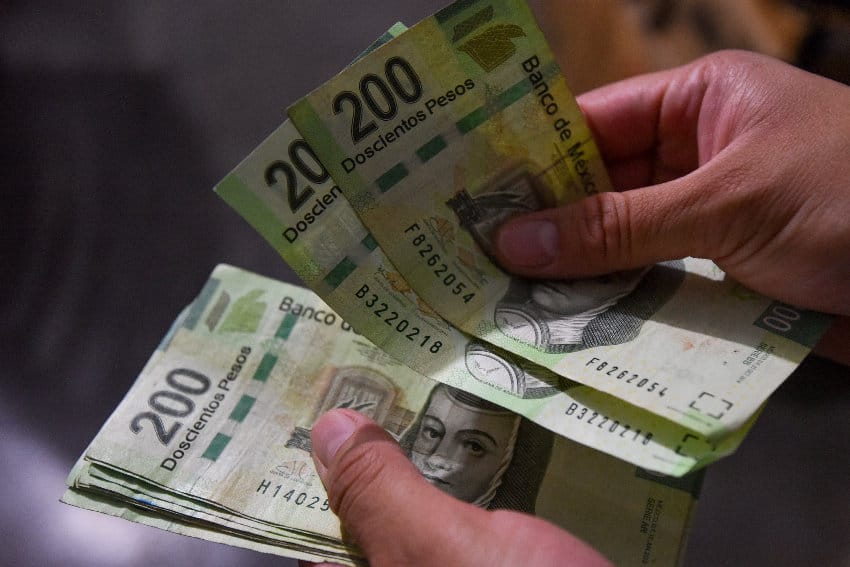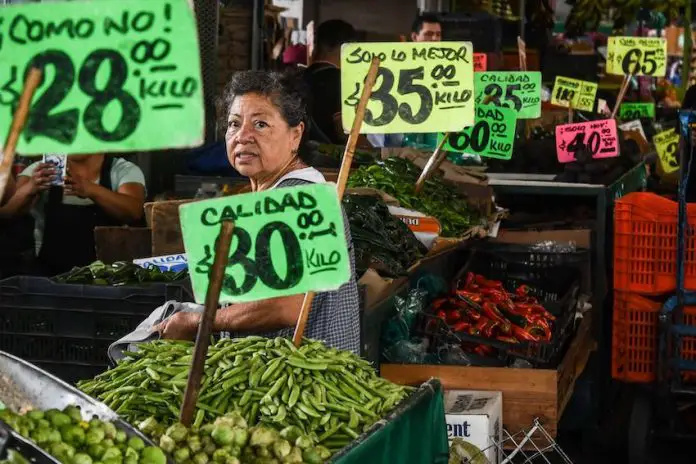Consumer confidence in Mexico declined in July compared to June, but remains higher than a year earlier, according to official data published on Monday.
National statistics agency INEGI reported that the consumer confidence index (ICC) declined 0.4 points between June and July to reach 46.9. On a year-over-year basis, the ICC increased 0.6 points.

The index score is calculated based on responses to a range of questions in the National Survey on Consumer Confidence.
INEGI, in conjunction with the Bank of Mexico, conducted the survey at 2,336 homes in cities across all 32 federal entities during the first 20 days of July.
It asked respondents about:
- Their current economic situation compared to a year earlier.
- Their expected economic situation over the next 12 months.
- Their opinion about Mexico’s current economic situation compared to 12 months earlier.
- Their opinion about Mexico’s expected economic situation over the next 12 months.
- Their current capacity to purchase furniture, a television, a washing machine and other home appliances compared to their capacity 12 months earlier.
Their responses — derived from the options of much better, better, the same, worse and much worse with regard to the first four questions, and greater, the same or lesser with respect to the fifth — were weighted and used to formulate the ICC score.
The biggest driver of the month-over-month decrease in consumer confidence was a decline of 0.7 points in the sub-index that measures perceptions of Mexico’s economic outlook over the coming year. The four other sub-indexes also declined compared to June, with the reductions ranging between 0.3 and 0.4 points.
The survey also found that Mexicans were less optimistic in July than a month earlier about their capacity to save some of their income, go on a vacation in the next 12 months and buy a car (new or used) in the next two years.
#TomaNota ✍🏼 El @INEGI_INFORMA publicó hoy el Indicador de Confianza del Consumidor (#ICC) de julio de 2024 y los resultados indican que la confianza del consumidor tuvo una disminución ⬇️ mensual y un aumento ⬆️anual.
🧵Te explicamos más en este mini hilo. pic.twitter.com/jrKmvXJSMl— México, ¿cómo vamos? (@MexicoComoVamos) August 12, 2024
The survey was conducted after economic growth in Mexico slowed to just 1.1% annually in the second quarter of the year.
Last month, the International Monetary Fund cut its 2024 growth forecast for Mexico to 2.2% from 2.4%.
Another issue on consumers’ minds is inflation: the National Consumer Price Index rose for a fifth consecutive month in July, with annual headline inflation hitting 5.57%.
Meanwhile, unemployment ticked up to 2.8% in June from 2.6% in May, and the Mexican peso has weakened considerably since the June 2 elections, making imported goods more expensive.
The peso was trading at 19.08 to the US dollar shortly after 1 p.m. Mexico City time, down from a closing position of 18.83 to the greenback on Friday, and 17.01 just before the comprehensive victory of Claudia Sheinbaum and the ruling Morena party in the presidential and congressional elections on the first Sunday in June.
Mexico News Daily
